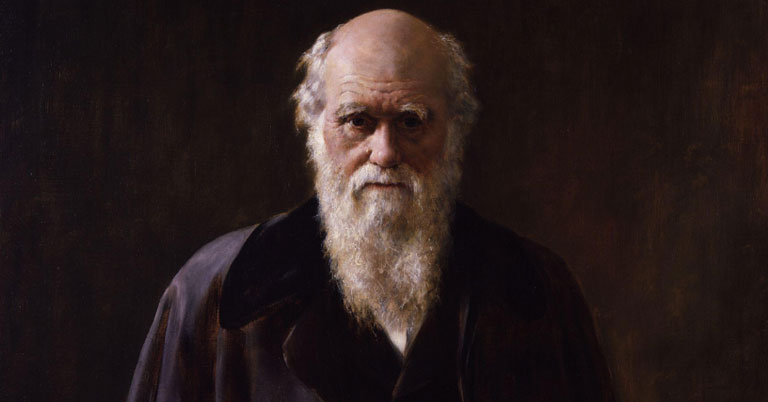
12/02/1809 – 19/04/1882
Charles Darwin, born in 1809 in Shrewsbury, England, and passed away in 1882 at Down House, Kent, was a British naturalist, biologist, and geologist. He is renowned for his theory of evolution by natural selection, which revolutionized biology and our understanding of life on Earth. Darwin quickly established himself as a central figure in science through his meticulous observations and innovative ideas.
He began his scientific career by participating in an expedition aboard the HMS Beagle in the 1830s. This journey was crucial for his discoveries, as he observed a wide diversity of life forms on different islands, notably the famous Galápagos finches. These observations laid the foundation for his theory of evolution.
In 1859, Darwin published “On the Origin of Species,” where he presented his evidence and arguments for evolution by natural selection. This book generated enormous controversy but also gained substantial support among scientists. The idea that species change over time and that humans share common ancestors with other life forms transformed biology.
In addition to his theory of evolution, Darwin contributed to other areas of biology. His work on sexual selection, insectivorous plants, and the expression of emotions in animals and humans was highly influential. He also published works on geology and botany, demonstrating a broad scientific knowledge.
Darwin received numerous honors throughout his life, despite his ideas often being contested. His work not only laid the foundations of modern biology but also influenced psychology, sociology, and other disciplines.
